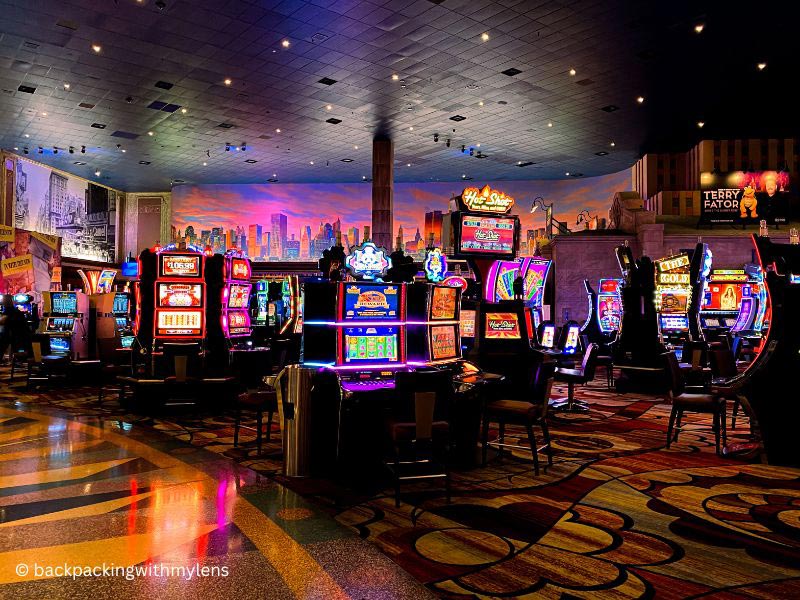Gaming establishments have long been a thrilling hub for those on the hunt for fun and the opportunity to win big. With an abundance of choices available, players are often enticed by specific types of games that correspond with their likes and gaming styles. As the tech industry has evolved, so too have the options within the casino landscape, leading to the growth of various categories of games that cater to a wide range of audiences.
From the classic appeal of table games to the dynamic excitement of slot machines, each genre brings its own individual charm and set of regulations. Grasping these popular game genres helps players navigate the casino experience, whether they are experienced players or beginners looking to venture into the thrilling world of casino games. In this article, we will explore the most well-liked genres found in casinos at present, showcasing what makes each one so attractive and fun.
Slot Machines
Slot games are among the top attractions in casinos, enticing players with their lively visuals and enticing gameplay. These games are simple to play and require no special skills, making them accessible to novices and seasoned gamblers alike. With a variety of themes and formats, from classic fruit machines to contemporary video slots, there is a game for every player. The joy of spinning the reels alongside the chance for huge payouts keeps players returning.
A key feature of slot games is their extensive selection of wagering choices. Players can choose to wager small amounts or go for bigger wagers, accommodating all budgets. Growing jackpots add to the thrill, with the chance for significant sums of money accumulated from players’ bets across networks of machines. The rush of anticipation while awaiting a winning combination is a major draw for slot fans.
In recent years, the emergence of digital gaming platforms has transformed the field of slot games, permitting players to play their favorite titles from the comfort of their own homes. Mobile compatibility has also played a key role, allowing players to spin the reels on the fly. With innovative features such as extra features, free spins, and engaging narratives, online slot games continue to grow, promising endless entertainment and excitement for casino lovers.
Table Games
Table games are a fundamental aspect of the casino experience, offering a lively and engaging atmosphere. These games typically involve a croupier and are played on a unique table. Classic games such as 21, baccarat, and the wheel are among the most popular choices for players. They require a combination of skill, tactics, and chance, making them attractive to a variety of gamblers. The social atmosphere at these games fosters engagement, allowing players to engage with each other and the croupier, adding to the overall excitement and entertainment value.
21 stands out as one of the favorites, where players aim to outsmart the dealer by having a hand value near 21 without exceeding it. The game’s simplicity combined with strategic elements, such as when to hit or hold, draws in both beginners and experienced players alike. Another widely enjoyed game, the wheel, fascinates with its spinning wheel and the excitement of placing bets on numbers, hues, or combinations, creating an intense experience that keeps players on the tiptoes.
Punto Banco has also gained popularity, especially among high rollers, due to its simple rules and chances for large payouts. As players place their bets on either the player or house hands, the suspense builds with each card drawn. These table games not only provide diverse gameplay experiences but also cultivate a sense of belonging, making casino activities an integral part of the casino’s appeal and charm.

Live Casino Experiences
Live dealer games are changing the way players experience online casinos by merging the convenience of digital gaming with the true atmosphere of a real casino. These games feature actual dealers who are broadcast live to players’ screens, allowing for communication via chat functions and a more interactive experience. Compared to traditional online table games that utilize only random number generators, live dealer games create a distinct and enthralling environment that attracts players seeking a genuine casino feel.
Popular live dealer games include classics such as the card game blackjack, roulette, and baccara, each offering various betting options and styles. CPC2888 Players can select from different tables and dealers, tailoring their gaming experience to their individual desires. The interactive component of live dealer games is enhanced as players talk to the dealer and fellow participants, making for a more fun and dynamic gaming session. This communication replicates the atmosphere found on a casino floor, drawing in both seasoned players and newcomers alike.
As technology advances, live dealer games keep to grow in popularity, with casinos expanding their offerings to include creative variations and themed experiences. Players are drawn to the genuineness and the ability to strategize in an immediate context, leading to increased interest in this type of casino gaming. With more players desiring immersive experiences, live dealer games will likely remain a mainstay in the changing landscape of online casinos.

